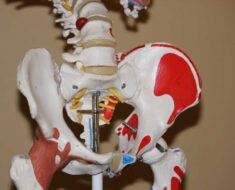Lung cancer: Dr Amir describes the symptoms in February
We use your sign-up to provide content in ways you’ve consented to and to improve our understanding of you. This may include adverts from us and 3rd parties based on our understanding. You can unsubscribe at any time. More info
Lung cancer rarely produces warning signs in the initial stages, but as the disease progresses signs may become increasingly difficult to ignore. Oftentimes, the first symptoms to arouse suspicion are a persistent cough or shortness of breath. In the case of one patient with small cell lung cancer, these symptoms were accompanied by pronounced changes in taste perception.
According to the National Cancer Institute, small-cell lung cancer is a disease in which malignant (cancer) cells form in the tissues of the lung.
For the majority of patients who develop the disease, current treatments will not succeed in curing their illness.
In fact, small-cell lung cancer is the most aggressive form of lung cancer due to the small size of the cells and the pace at which they grow.
Often, by the time they’ve been detected they’ve already formed into large tumours which have spread to neighbouring tissue.

“Signs and symptoms of small-cell lung cancer include coughing and shortness of breath,” adds the National Cancer Institute.
Another less widely discussed symptom of the disease is dysgeusia, a disorder that alters the taste of food.
The Cleveland Clinic explains: “People with the condition feel that all foods taste sour, sweet, bitter or metallic.”
When dysgeusia is a sign of cancer most patients report a metallic or sour taste, but some atypical cases have reported a sweet taste.
One such case was highlighted by The Journal of Hospital Medicine in 2012.
The report explained that a 60-year-old female bookkeeper, with a history of smoking, presented with a persistent sweet taste in her mouth.
“The dyspepsia started about two months prior to presentation and had progressively gotten worse,” stated the report.
“She reported the sweet taste was continuous throughout the day.”

The Journal of Neurology, Neurosurgery, and Psychiatry states that while taste distortion is rare in cancer, partial dysgeusia in which all tastes are interpreted as sweet is also rare.
Nonetheless, the patient was later confirmed to have small-cell lung cancer.
The report stated: “Imaging with the CT scan revealed two pulmonary masses in the right upper lobe and hepatic metastases.
“Usually when a patient presents with a sweet taste in their mouth, the first thought is of diabetes leading to a check of serum glucose levels.”

The researchers, therefore, advise that doctors who receive patients with dysgeusia unrelated to glucose levels conduct more thorough examinations.
How to prevent small-cell lung cancer?
Almost all patients diagnosed with small-cell carcinoma have a history of smoking, with non-smokers having the lowest risk of the disease.
cancer.net explains that even people who have smoked can reduce their risk of the disease by stopping it. Their risk, however, will still be higher than people who have never smoked.
Source: Read Full Article





